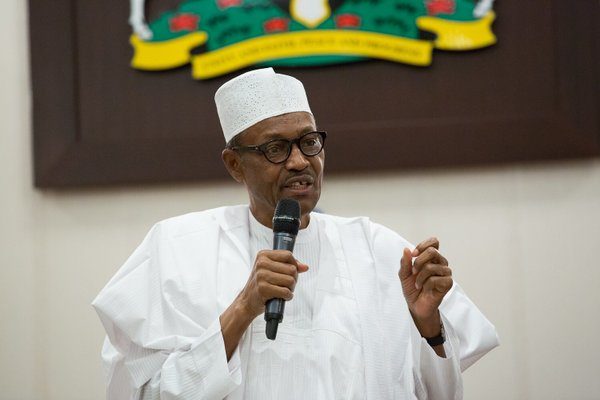Nigeria is at a crossroads. Just over a year ago, people voted in a historic democratic election to end corruption and business as usual, opting instead to build an economy that delivers for all Nigerians.

The old order was based on an unsustainable commodities supercycle. While the boom had many positives and contributed to Nigeria becoming Africa’s largest economy, it fostered an epidemic of corruption and inefficiency. Foreign businesses and financial institutions also benefited as some people spent and sometimes hid huge sums abroad, lifted by the rising tide of oil exports and dollar revenues.
Now we are living in a new world of low energy prices. The economy has slowed while unemployment and inflation have jumped. Longstanding structural imbalances and overdependence on imports have been cruelly exposed. We are an oil-rich nation that imports most of our gasoline. We are a farming nation that imports most of our basic food staples. This is simply not acceptable or sustainable.
Our solutions must be in proportion to the challenges. Fundamental change takes time and we are driving not one but three changes to reposition Nigeria for inclusive growth.
• Restore trust We have begun to tackle the endemic corruption and mismanagement that is crippling our economy and corroding trust in our institutions. The anticorruption fight is at the heart of combating poverty and improving security. We have stepped up enforcement and new prosecutions to get our house in order, and I have called for foreign governments to work with us to identify where funds stolen during previous administrations are lodged and for multistate cooperation to combat oil theft.
Fighting corruption is not enough. We need accountable government and a public sector that can do more with less. We have already taken initial steps by bringing all government finances into a single treasury account where we can monitor spending and impose discipline, implementing zero-based budgets and benchmarks targeted at waste and fraud, and establishing electronic platforms for government agency interface.
• Rebalance our economy In a world of lower oil prices and dollar revenues, the only sustainable path is to reduce Nigerians’ overreliance on imports. We must rebalance our economy by empowering entrepreneurs and producers, big and small, to create more of what their fellow Nigerians demand. The supply of foreign exchange to the economy must be increased. This requires radically increasing exports and productivity and improving the investment climate and ease of doing business.
Nigeria’s growth and job creation will be led by the private sector. We are a young, entrepreneurial society with vibrant success stories in new industries such as telecommunications, technology and entertainment. Government is doing its part to lower taxes on small businesses, eliminate bureaucracy to bring the informal economy out of the shadows and provide development funding for priority sectors such as agriculture. The central bank has moved to introduce greater flexibility in our exchange-rate policy. These actions are a downpayment on our people’s ability to succeed.
• Regenerate growth We must reposition our economy by attracting investment in domestic industries and infrastructure. Nigeria has huge untapped gas reserves and also a critical shortage of electricity. Our private sector loses too much of its revenue due to brownouts and power outages. Half of my fellow Nigerians have no access to the power grid. Investment in our power infrastructure, restructuring of the state-run oil-and-gas sector and development of other industries such as solid minerals, metals and petrochemicals will help to create a virtuous circle of growth and exports while creating jobs and reducing poverty.
I am optimistic that our actions are providing the breathing room Nigeria needs during this period of fundamental change. But we cannot improve living conditions and restore fiscal health without making people feel safe and secure—just as we cannot defeat militancy without reducing poverty and dislocation.
One of our main achievements this past year has been to unite regional and global allies to push back Boko Haram. What we do in the next three years to build an economic bridge to Nigeria’s future will be just as important for bringing lasting peace and prosperity.
Mr. Buhari is the president of Nigeria.

